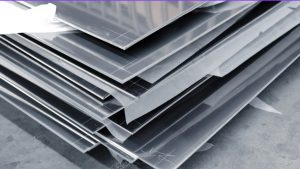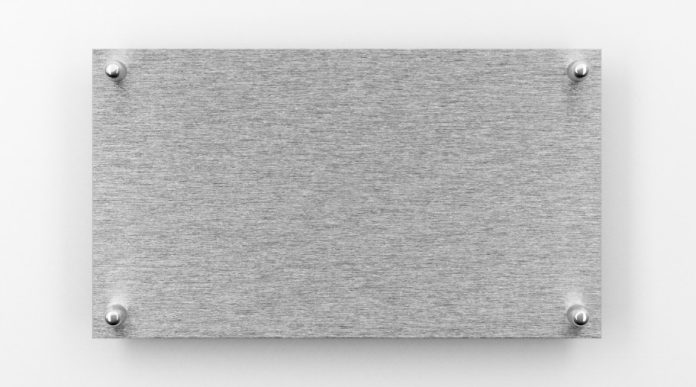Table of Contents
When it comes to designing and constructing commercial spaces, choosing the right materials is critical. From durability to aesthetics, the materials used can significantly impact the long-term performance and appearance of a project.
Among the most popular choices for modern commercial applications is the aluminium composite board — a material that combines strength, versatility, and visual appeal.
In this post, we explore why aluminium composite boards are proving to be a durable solution for commercial projects across the UK.
What Are Aluminium Composite Boards?

Aluminium composite boards are made from two thin layers of aluminium enclosing a non-aluminium core. This layered construction provides a lightweight yet strong panel that is suitable for a wide range of applications.
Commonly used in cladding, signage, partitions, and facades, these boards offer a clean, modern look while delivering outstanding performance.
The aluminium layers are typically coated with high-quality paints or finishes, making them resistant to corrosion, UV rays, and weathering.
The core, often made from polyethylene or a fire-retardant material, adds to the board’s structural stability and safety rating.
This combination of properties makes aluminium composite boards a smart choice for architects, contractors, and designers working on demanding commercial projects.
Benefits of Using Aluminium Composite Boards
1. Durability and Weather Resistance
One of the key reasons why aluminium composite boards are widely used in commercial construction is their durability.
They are built to withstand the UK’s often unpredictable weather conditions, including rain, frost, and intense sunlight.
Unlike traditional timber or other materials that may warp, rot or fade, composite boards maintain their shape and finish for years with minimal maintenance.
2. Lightweight and Easy to Install
Despite their robust construction, aluminium composite boards are surprisingly lightweight. This makes transportation, handling, and installation much simpler compared to solid aluminium sheets or other heavy cladding materials.
The ease of installation not only saves time but also reduces labour costs — a significant advantage on large commercial sites where deadlines and budgets are tight.
3. Aesthetic Flexibility
Aluminium composite boards are available in a wide range of colours, textures, and finishes. Whether you’re aiming for a sleek metallic look, a woodgrain effect, or even a custom colour scheme, there’s a finish to suit almost any design vision.
This aesthetic flexibility allows commercial buildings to achieve a distinctive appearance while still benefiting from the technical performance of the material.
4. Low Maintenance
Commercial buildings often need materials that require little upkeep, particularly for external cladding. Aluminium composite board excels in this regard.
It is resistant to staining, and their surface finishes are designed to stay clean and vibrant with occasional washing. This helps maintain the visual appeal of the building without incurring ongoing maintenance costs.
5. Sustainability and Recyclability
Sustainability is an increasingly important consideration in commercial development. Aluminium composite boards tick this box as well.
Aluminium is a highly recyclable material, and many composite boards are produced using recycled content. Moreover, their long lifespan and low maintenance needs contribute to lower environmental impact over time.
Applications in Commercial Projects

Aluminium composite boards are used across a wide spectrum of commercial settings, from retail parks and shopping centres to office buildings and transport hubs. Here are some common uses:
- External Cladding: Providing an attractive and weatherproof façade.
- Interior Partitions: Creating modern, sound-insulated office interiors.
- Signage: Durable and professional-looking signs for branding and navigation.
- Canopies and Columns: Adding architectural interest and protection from the elements.
- Refurbishment Projects: Giving older buildings a contemporary new look without major structural changes.
Their adaptability makes them suitable for both new builds and renovations, giving developers the flexibility to meet both functional and aesthetic demands.
Meeting Building Regulations and Fire Safety

Safety is paramount in any commercial construction, particularly when it comes to fire performance. In response to past concerns about cladding materials, modern aluminium composite boards designed for commercial use in the UK are now subject to rigorous testing and certification.
Fire-rated variants are available, offering enhanced protection and compliance with current UK building regulations.
When specifying materials for a project, it is essential to choose products that meet the required safety standards and are supplied by reputable manufacturers.
Final Thoughts
The commercial construction industry is constantly evolving, with increasing demands for performance, sustainability, and visual appeal.
Aluminium composite boards have emerged as a reliable and forward-thinking solution, offering a combination of durability, design flexibility, and value that is hard to beat.
Whether you’re working on a high-profile office block, a retail chain expansion, or a local authority building, incorporating aluminium composite boards can deliver both immediate benefits and long-term peace of mind.
With their proven track record in projects across the UK, they continue to be a trusted choice for professionals looking to build with confidence.


